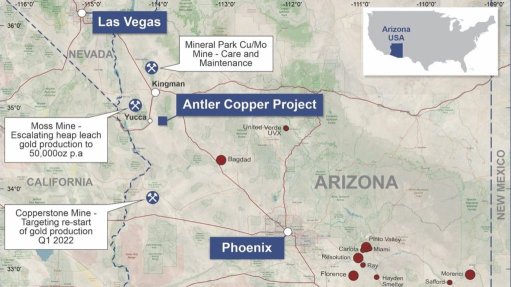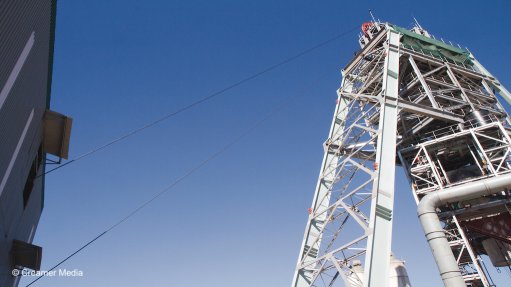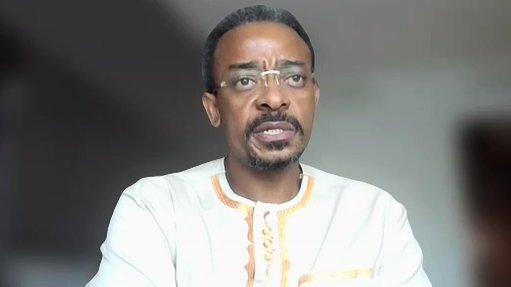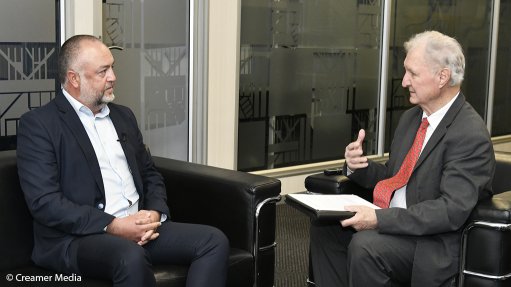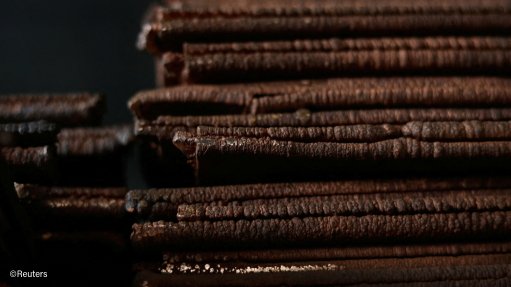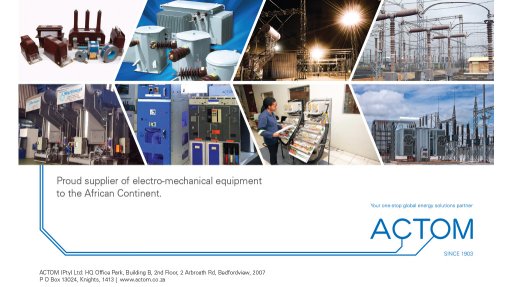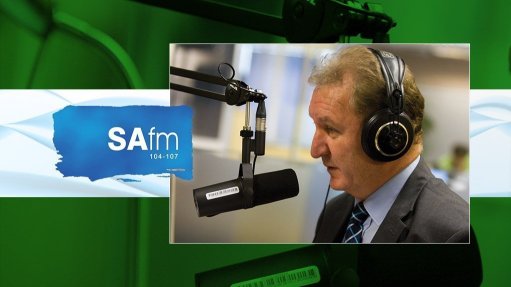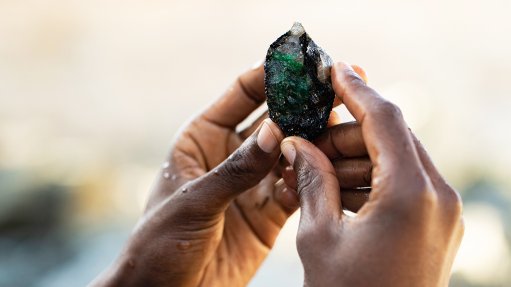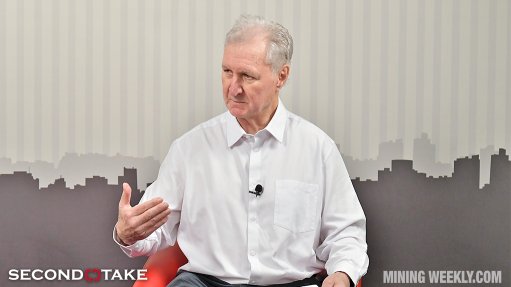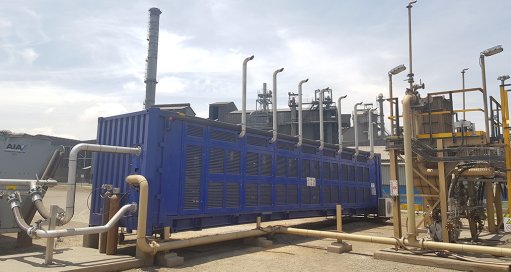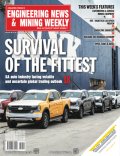Gold miner distributed $690m in host communities in 2018

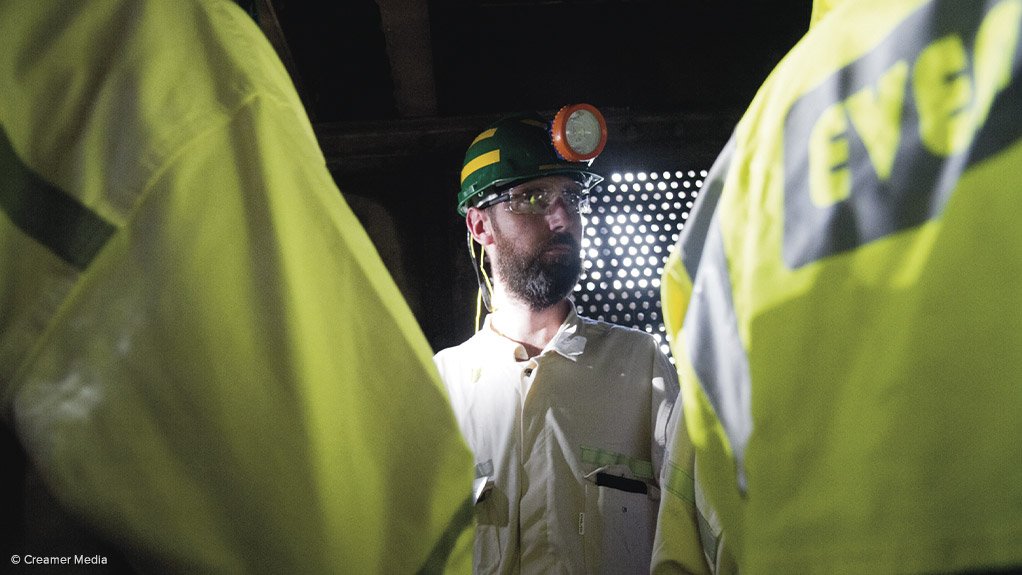
ATTENTION TO DETAIL Gold Fields continues to focus on building a more diverse and inclusive workforce
Photo by Creamer Media
Gold mining company Gold Fields’ investment in communities goes well beyond socioeconomic development and compliance spending, says Social, Ethics and Transformation Committee chair Dr Carmen Letton.
The company is making considerable progress in sharing the value it creates with the communities surrounding its mines to alleviate unemployment and create sustainable economies through community employment and procurement, she said during her first report as chair of the committee at Gold Fields’ annual general meeting (AGM) on May 21.
Letton noted that the committee had been asking Gold Fields to prioritise this value-sharing initiative over the past few years.
At the end of 2018, 56% of Gold Fields’ workforce, or 9 259 people, were members of its host communities. Further, 27% of the company’s total supplier spend was with enterprises from these communities.
Gold Fields distributed 25% of its total value creation – the equivalent of $690-million – in these host communities last year.
“This is significant and the management teams at [our] mines have been incentivised to achieve further sustainable host community job creation and procurement,” said Letton.
The company’s community investment projects have also provided significant shared value to its operations and its communities, she added, highlighting that, at the time of her address, finishing touches were being made to Gold Fields’ largest infrastructure investment to date – the $26-million public road between its Tarkwa and Damang mines, in Ghana.
“Not only will this make transport between our two mines faster and safer, it created community jobs during construction and offers almost 100 000 affected residents easier access to schools, markets and public facilities.”
Similarly, at Gold Fields’ Cerro Corona mine, in Peru, the company has spent almost $3-million over the past three years on improving water supply to host communities, providing a large majority of residents access to potable water.
During 2018, of the almost $2.6-billion in revenue generated by Gold Fields, it distributed $26-million to communities in the form of socioeconomic development spending and shared value projects. A further $147-million was distributed to its capital providers and shareholders, $283-million to governments in the form of taxes and royalties and $1.82-billion to Gold Fields’ business partners.
To its workforce (employees and contractors) the company distributed $442-million. Described by Letton as one of Gold Fields’ most critical stakeholders, she said the company’s workforce was structured to support the delivery of immediate and long-term strategic objectives so that the company’s mines could continue to operate sustainably and profitably.
People Factor
“During 2018, the two most significant people-related developments were the restructuring exercise and related strike action at South Deep [in Gauteng], as well as the transition from owner to contractor mining at Tarkwa,” Letton noted.
Owing to the workforce restructuring at these mines, Gold Fields’ overall workforce numbers fell by 5% from 18 594 in 2017 to 17 611 in 2018. The number of direct employees declined by 37% to 5 601, while the number of contractors rose 23% to 12 010.
“The retrenchment of 1 082 employees and 420 contractors at South Deep was particularly painful,” Letton noted.
The retrenchments were opposed by the majority union; however, management was left with little alternative to this course of action, as the mine was losing R100-million a month, said Letton. If Gold Fields had not proceeded with the retrenchments, the long-term sustainability of the mine and the remaining 3 500 jobs would have been at risk.
Meanwhile, at Tarkwa, the maturity of the mine and the accompanying costs would have made the previous owner mining model unsustainable, Letton explained.
“While the switch to contractor mining was opposed by the union, all 2 100 affected employees received generous retrenchment benefits in line with Ghanaian labour laws. Almost 80% of them were rehired by two contractors, with most coming from our host communities.”
In terms of training and development, Gold Fields has, in the past five years, invested $77-million in human resources development programmes, which include on-the-job skills training, learnership training, apprenticeships and the training of artisans.
Letton stressed that Gold Fields continued to focus on building a more diverse and inclusive workforce, particularly by employing women, residents from its host communities and, in South Africa, historically disadvantaged people.
A diversity policy was approved by the board during 2018. In addition to increasing the attraction and retention of female employees, this policy also emphasises the importance of ensuring that all people are treated with dignity and respect.
Since last year’s AGM, the committee also approved a new Group Sexual Harassment Policy, an updated Group Disciplinary and Grievance Policy, an updated Human Rights Policy and a new Materials and Supply Chain Stewardship Policy.
Comments
Press Office
Announcements
What's On
Subscribe to improve your user experience...
Option 1 (equivalent of R125 a month):
Receive a weekly copy of Creamer Media's Engineering News & Mining Weekly magazine
(print copy for those in South Africa and e-magazine for those outside of South Africa)
Receive daily email newsletters
Access to full search results
Access archive of magazine back copies
Access to Projects in Progress
Access to ONE Research Report of your choice in PDF format
Option 2 (equivalent of R375 a month):
All benefits from Option 1
PLUS
Access to Creamer Media's Research Channel Africa for ALL Research Reports, in PDF format, on various industrial and mining sectors
including Electricity; Water; Energy Transition; Hydrogen; Roads, Rail and Ports; Coal; Gold; Platinum; Battery Metals; etc.
Already a subscriber?
Forgotten your password?
Receive weekly copy of Creamer Media's Engineering News & Mining Weekly magazine (print copy for those in South Africa and e-magazine for those outside of South Africa)
➕
Recieve daily email newsletters
➕
Access to full search results
➕
Access archive of magazine back copies
➕
Access to Projects in Progress
➕
Access to ONE Research Report of your choice in PDF format
RESEARCH CHANNEL AFRICA
R4500 (equivalent of R375 a month)
SUBSCRIBEAll benefits from Option 1
➕
Access to Creamer Media's Research Channel Africa for ALL Research Reports on various industrial and mining sectors, in PDF format, including on:
Electricity
➕
Water
➕
Energy Transition
➕
Hydrogen
➕
Roads, Rail and Ports
➕
Coal
➕
Gold
➕
Platinum
➕
Battery Metals
➕
etc.
Receive all benefits from Option 1 or Option 2 delivered to numerous people at your company
➕
Multiple User names and Passwords for simultaneous log-ins
➕
Intranet integration access to all in your organisation







